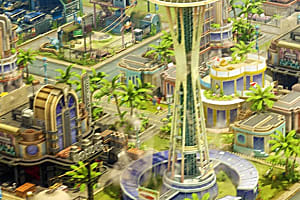The news of noted Urdu writer from Hyderabad, Professor
Mohammed Baig Ehsas winning the Sahitya Akademy Award has brought some much needed cheer to the literati of the city. Ehsas's win has ended the 20-year drought that ensued since the last Hyderbadi, the celebrated poet, Gian Singh 'Shatir' was bestowed with the Sahitya Akademi Award in 1997. The much revered revolutionary poet, late
Maqdoom Mohiuddin is the only other city poet to have been conferred the honour, back in 1967. An elated Ehsas believes the Akademi has honoured him and Urdu language at the right time.
Urdu is the only language that our people identify India's history and culture with
"This award has come at a time Urdu has been recognised globally. The fact that Google came up with a doodle to commemorate the 220th birth anniversary of the great Urdu poet, Mirza Ghalib recently, is testimony to the fact. Urdu is the only language people identify India's history and culture with, right from Kashmir to Kanya Kumari. Urdu connects India and its people, and this great language, which has evolved over centuries in Hindustan through interactions of many languages and people, is the true embodiment of the cultural synthesis that makes up India's great heritage," says the 69-year-old who won the Sahitya Akademy Award for Urdu in the
category of short stories for his collection, Dakhma (Tower of Silence).
I'm a chronicler of Hyderbadi lives
Baig, who describes himself as a chronicler of
Hyderbad, has published three collections of short stories — Khusha-e-gandum, Hanzal and Dakhma and a collection of literary essays titled, Shor-e-jahan. In an illustrious career spanning over four decades, Ehsas chose the medium of short stories to present his social criticism by specifically focusing on the issues faced by Muslims in India. Some of
his works have been translated into English and Kannada as well. Hyderabad city has served as the backdrop for most of his stories and especially his award winning work, Dakhma, which narrates the lives of people living near the old Parsi graveyard of Secunderabad. Baig will be conferred the award carrying a prize of `1 lakh and a copper plaque on February 12 in New Delhi.
Hyderabad's mili-juli culture is a treasure trove of stories He believes that not much has been
written on Hyderbad's mili-juli culture and unique tehzeeb in literary circles. "This great city has nurtured a cosmopolitan and secular culture over centuries right from the era of Qutb-Shahis. Names of prominent places and landmarks like Nampally, Mehdipatnam bear testimony to our city's mixed and composite culture. Hyderabad has a unique culture and civilisation which no other city in India can boast of. But, no one has written on this culture," says Baig who is an expert on the works of Kishan Chander and had completed his Ph.D on the progressive writer.
We had great teachers who nurtured great Urdu scholars, I feel sad about the present academic situation of OU
The resident of Tolichowki had served as the professor and head of the Urdu department at the
University of Hyderbad and as lecturer at Osmania University. He also holds the rare distinction of belonging to the first batch of Urdu research scholars of UoH when the Urdu Department began in 1979. Unfortunately, he has also been witness to the decline of Urdu over the years. "I feel sad about the present academic situation of
Osmania University from where I completed my graduation. We had great teachers at that time who nurtured great Urdu scholars and writers. The Osmania University has an illustrious past which is associated with some of the greatest Urdu writers," rues Ehsas.
The main reason for the language's decline, particularly in Hyderabad, is because Urdu literature has not received its due in literary circles, he reckons. "It's ironic that, this city which produced great writers like Maqdoom and Mujtaba Hussain and fostered a legacy of the thriving Mushaira culture has been completely over looked, while Lucknow has been appreciated highly as the centre of Urdu literature. But, Hyderabad has a great lineage of Hindu-Muslim synchretic culture in art, culture and literature. So, it's high time, our city gets its legible status in Indian literature."
The language does face a big challenge from English but I am confident about Urdu's future in India
While there is no denying that the share of Urdu speakers has declined over the past few decades, the language has witnessed a resurgence in the social media sphere in particular. "Urdu has reached new heights and it has been used widely in social media as well, which helped to improve its popularity. I am glad that it has emerged a social medium and has been widely used for interactions on Facebook. The language does face a big challenge from English but I am confident about Urdu's future in India," he says signing off.






